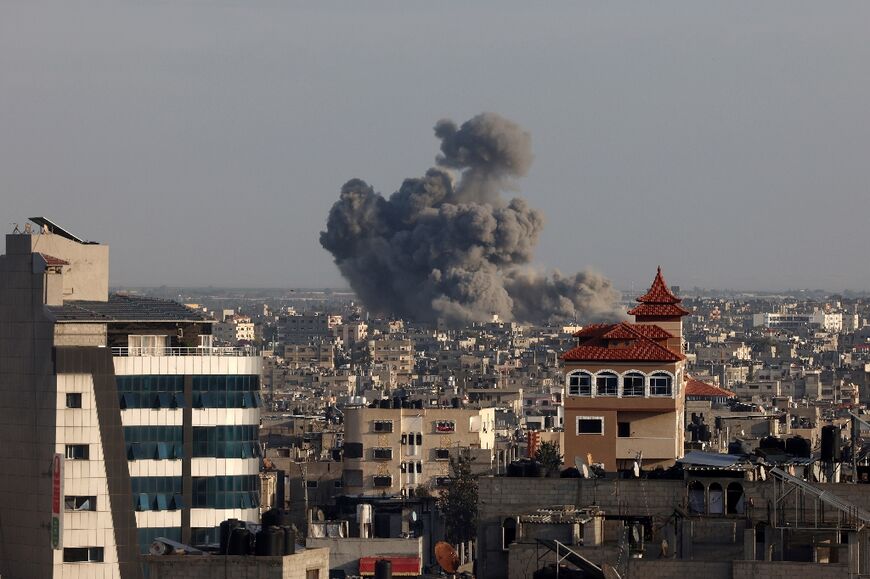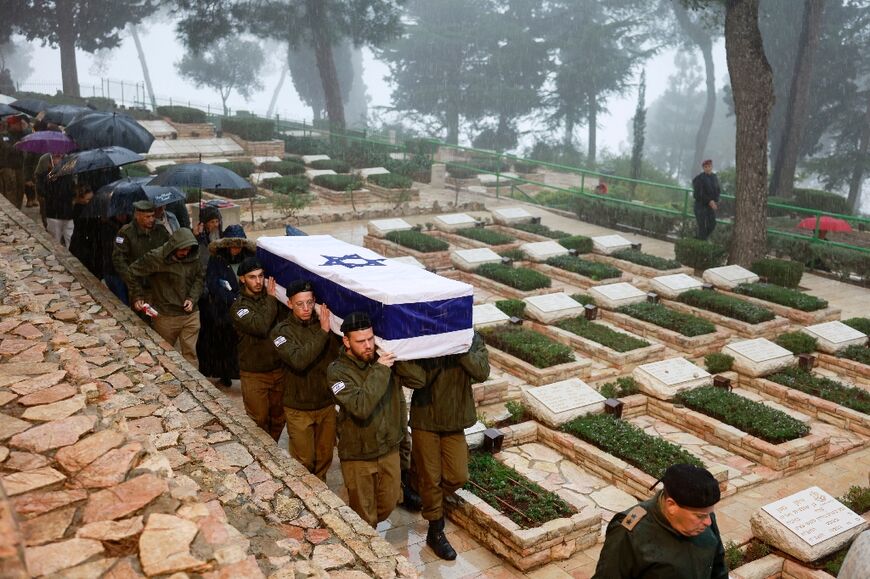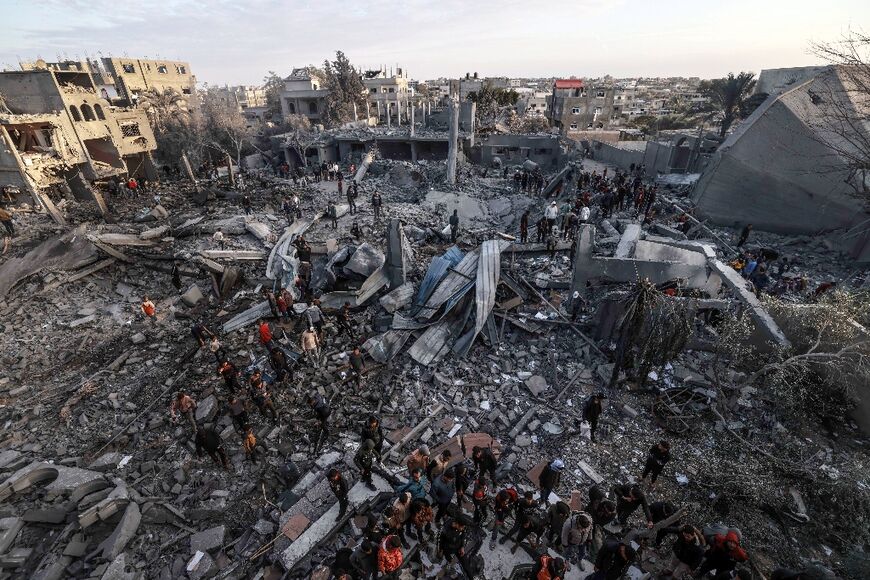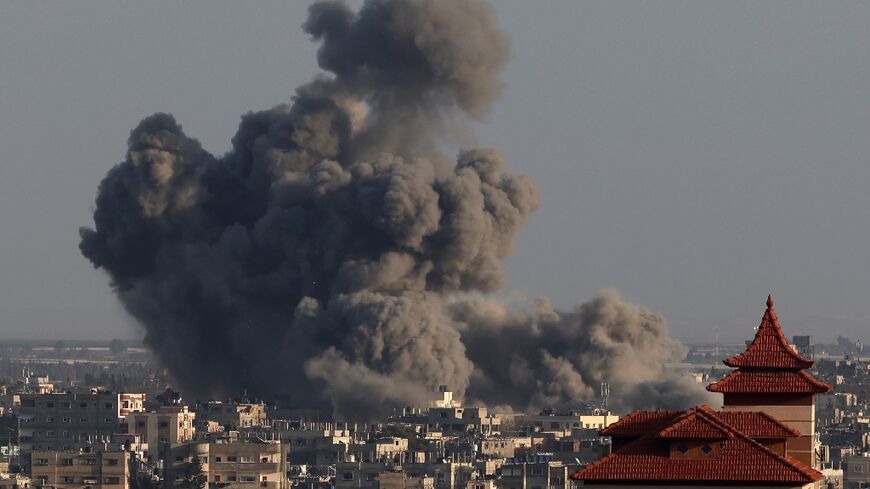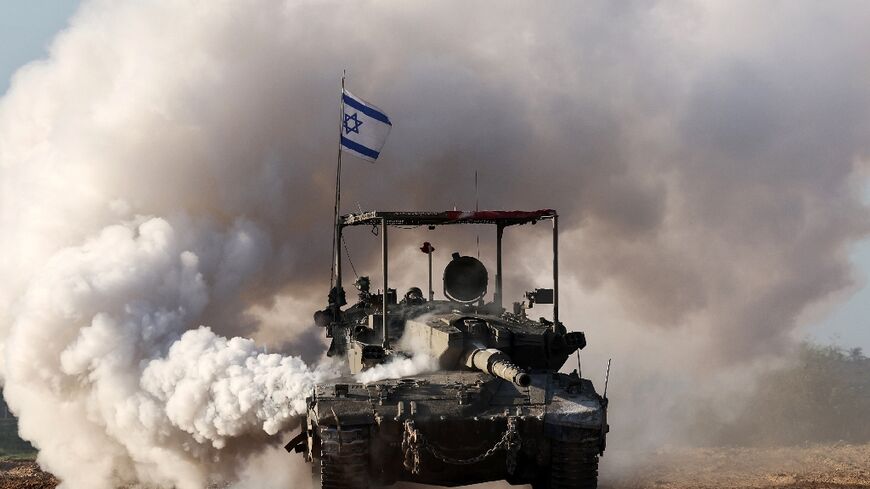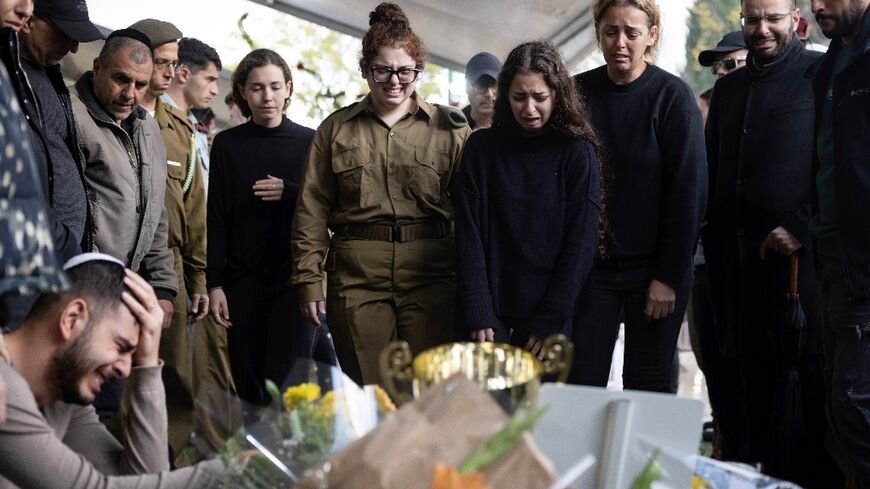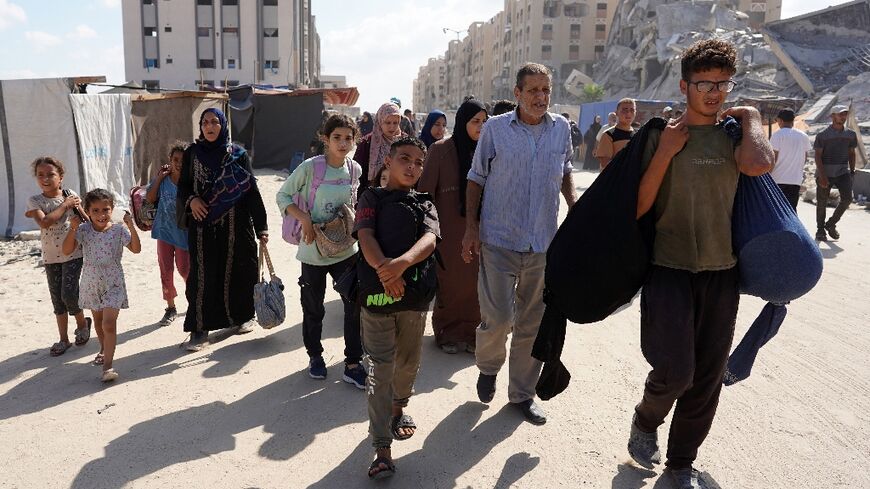UN shelter hit by deadly shelling as south Gaza fighting escalates

Fighting intensified Wednesday in Gaza's Khan Yunis, the focus of Israel's war against Hamas, with the UN saying nine people were killed in tank shelling at one of its shelters, sparking international condemnation.
The United Nations slammed a "blatant disregard" for the rules of war while the United States deplored the attack at the shelter housing displaced Palestinians in southern Gaza's biggest city.
It came after the Israeli army said it had encircled Khan Yunis, the birthplace of Hamas's Gaza chief Yahya Sinwar, accused of being the mastermind of the October 7 attacks that sparked the war.
Footage released by the military showed Israeli soldiers engaged in urban combat in the city amid ruined buildings. Large clouds of black smoke billowed over Khan Yunis during Israeli bombardments, AFP photos showed.
The attack on the UN shelter, housing 800 people, saw the site hit by two tank rounds, killing nine and injuring 75, said Thomas White, the Gaza head of the UN agency for Palestinian refugees.
Philippe Lazzarini -- the head of the agency, UNRWA -- condemned the attack and said the number of dead was likely to rise.
"Once again a blatant disregard of basic rules of war," Lazzarini said on X, formerly Twitter, adding that the compound had been clearly marked as a UN facility, and its coordinates had been shared with Israeli authorities.
When asked about the incident, the Israeli army told AFP "a thorough review of the operations of the forces in the vicinity is underway," adding it was examining the possibility that the strike was a "result of Hamas fire".
- 'Protect civilians' -
The United States deplored the attack, with State Department spokesman Vedant Patel saying "civilians must be protected and the protected nature of UN facilities must be respected".
Heavy fighting was meanwhile reported close to hospitals in Khan Yunis, including Al-Aqsa, Nasser and Al-Amal, with reports of Palestinians trying to flee, said UN humanitarian agency OCHA.
"No-one can enter or exit (Nasser Hospital) due to ongoing bombardments," OCHA said, citing medics who also reported that staff were digging graves on the grounds of the facility "due to the large numbers of fatalities anticipated".
OCHA said about 18,000 people uprooted from their homes were reported to be at Nasser Hospital alone.
An AFP journalist saw Palestinians who fled Khan Yunis arriving in the southern town of Rafah on the backs of pick-up trucks along with their belongings.
Gaza hospitals had already received the bodies of at least 125 people killed overnight, the health ministry in the Hamas-run territory said.
- 'Buffer zone' -
The Gaza war began with Hamas's unprecedented October 7 attack, which resulted in the deaths of about 1,140 people in Israel, mostly civilians, according to an AFP tally based on Israeli official figures.
Militants also seized 250 hostages, and Israel says around 132 remain in Gaza. That number includes the bodies of at least 28 dead hostages, according to an AFP tally based on Israeli figures.
In response, Israel has carried out a relentless military offensive that has killed at least 25,700 people in Gaza, about 70 percent of them women and children, according to the health ministry in the Hamas-run territory.
The government of Prime Minister Benjamin Netanyahu has come under mounting pressure to end the war, with the UN's top court expected to hand down a landmark ruling over genocide allegations on Friday.
Domestic pressure intensified after 24 soldiers were killed Monday in the army's deadliest single day since it launched ground operations in Gaza.
Citing Israeli officials, the New York Times said 21 were killed in an operation to demolish part of a Palestinian neighbourhood as part of a plan to create a "buffer zone" inside Gaza along the Israeli border.
- 'War for our home' -
But in an address to the Israeli parliament Wednesday, Netanyahu pledged the conflict would continue until the "aggression and evil" of Hamas were destroyed.
"This is a war for our home," he said.
"It must end, and it will end, with the eradication of the aggression and evil of the new Nazis," he added, comparing Hamas to the German regime that slaughtered six million European Jews during World War II.
In Rafah, Palestinians inspected the damage after a strike on a mosque, which had been reduced to rubble.
Israel "claims that Rafah is a safe zone, and we headed to Rafah based on (these) instructions that it is a safe zone, only to discover that it is just like other areas," Mohammed Barbakh, who had been displaced from Khan Yunis, told AFPTV.
US President Joe Biden's Middle East envoy Brett McGurk is in the region for talks aimed at brokering a new deal to free the remaining captives in exchange for a pause in fighting.
A Palestinian source familiar with the talks said a Hamas delegation had arrived in Cairo on Tuesday to meet Egypt's intelligence chief and discuss new ceasefire proposals.
The Gaza war has spurred fears of a wider escalation, with a surge in violence involving Iran-backed Hamas allies across the Middle East.
Yemen's Iran-aligned Huthi rebels fired three missiles at two merchant ships in the Red Sea, in their latest attack in the commercially vital waterway, the White House said.
The Huthis later confirmed their responsibility for the attack, vowing to continue targeting ships despite repeated US and British strikes against them.
burs-sr/jsa


